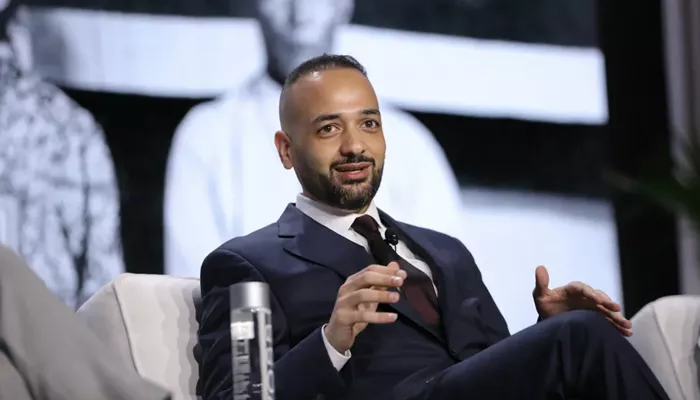On January 27, 2017, President Donald Trump signed an executive order aimed at “protecting the American people from terrorist attacks by foreign nationals.” This action was part of a series of moves during his early presidency to reverse policies established by his predecessor, including defunding sanctuary cities and dismantling the Affordable Care Act. Over his four years in office, Trump issued 472 executive actions to reshape the immigration system.
One of the most notable and controversial actions was the order titled “Protecting the Nation From Foreign Terrorist Entry Into the United States,” often referred to as the “Muslim ban.” This policy targeted travelers from seven Muslim-majority countries: Iraq, Iran, Libya, Somalia, Sudan, Syria, and Yemen. It had a particularly severe impact on Syrian refugees, halting their resettlement indefinitely and reflecting the administration’s commitment to its nativist agenda.
The day after the order was signed, protests erupted at airports nationwide as travelers were detained. Congressional Democrats gathered outside the Supreme Court in opposition, and international leaders condemned Trump’s actions as shameful. Former President Barack Obama commended citizens for exercising their constitutional right to protest.
At the time, the anger and resistance were palpable. However, years of anti-immigrant rhetoric and policies—especially the shift by some Democrats toward tougher border stances—have changed the political landscape. The idea that America should limit immigration has become more normalized.
Now, as the possibility of a second Trump administration looms, immigrant rights activists and advocates are preparing for renewed challenges. Many have not forgotten the struggles they faced during Trump’s first term. Murad Awawdeh, president and CEO of the New York Immigration Coalition (NYIC), played a key role in opposing the travel ban. He described feeling personally targeted as a Muslim American during that time.
Awawdeh and other veteran organizers are readying themselves for another fight, equipped with insights from past experiences. “If Trump is elected again, we will go into defend and protect mode,” he said. “We’ve seen what he did to our communities in his first term, disregarding laws and the Constitution.”
The former president has promised a series of crackdowns on immigration, including mass deportations and the use of military forces within the U.S. He has also indicated plans to restore the “Muslim ban.” “When I return to office, the travel ban is coming back even bigger and stronger,” he stated in 2023. In September, he remarked on stopping refugees from Gaza, asserting that the U.S. would not accept individuals from “terror-infested countries.”
Expelling approximately 11 million unauthorized immigrants is a cornerstone of Trump’s 2024 campaign. He has repeatedly pledged to carry out the largest deportation operation in U.S. history, which could lead to significant human costs and community disruption. Awawdeh noted that even if mass deportation efforts are not fully realized, they would instill fear within immigrant communities.
In preparation for potential challenges, activists are focusing on strategic litigation, a tactic they feel was not utilized as effectively during Trump’s first term. Policy experts at the National Immigration Law Center (NILC) are compiling a list of proposed policies from the Trump campaign that could be unconstitutional, including the plan to end birthright citizenship and the deployment of military forces for deportations.
Matos emphasized that the current political climate indicates a disregard for constitutional rights, with the Supreme Court becoming increasingly conservative and supportive of expansive presidential power over immigration policy. To counter this, a coordinated effort will be necessary, spanning from legal battles to community organizing.
“We are bracing for the worst and need to think ahead because the stakes are too high,” Awawdeh remarked. “We must consider what a white supremacist might do in office, guided by Project 2025.”
Community education and preparedness are also crucial components of their strategy. Advocates are ramping up training on immigrant rights and providing resources for families to create safety plans. They are also collaborating with local organizations to establish safe spaces for immigrants during potential raids.
Lindsay Toczylowski, co-founder and CEO of the Immigrant Defenders Law Center (ImmDef), which specializes in deportation defense, stresses the importance of learning from past election cycles. With Los Angeles housing a significant number of immigrants facing deportation, ImmDef has taken steps to enhance its capacity to assist these individuals.
Toczylowski worries about cases where legal intervention comes too late to prevent deportation. As the November election approaches, she reflects on the potential fallout from mass deportation. “We see the lasting impact when someone is removed from our community,” she stated.
In anticipation of potential raids, strengthening the legal defense network to mobilize pro bono immigration attorneys is vital. ImmDef has invested in training lawyers to support deportation defense efforts and has partnered with organizations serving indigenous migrants to produce educational materials in multiple languages.
Kessler, of the Vera Institute of Justice, notes that the fight for immigrant rights extends beyond elections. The immigration system remains broken regardless of who is in office. Mobilizing public support is essential to combat the vilification of immigrants, and large-scale protests may be necessary to draw attention and encourage intervention from elected officials.
“Grave injustices existed before the previous administration and will likely continue regardless of the election outcome,” remarked Faisal Al-Juburi of the Refugee and Immigrant Center for Education and Legal Services (RAICES), a Texas-based legal nonprofit. “We must remain vigilant and ready to act.”
Related topics:
- Small Ohio Village Residents React to Surge of Illegal Immigrants: ‘We’re Overwhelmed’
- Georgia Secretary of State Refutes Claims in Controversial ‘Haitian Immigrant’ Voting Video
- TPS Board Member Defends Controversial Remarks on Immigrant Students as Security Risks


